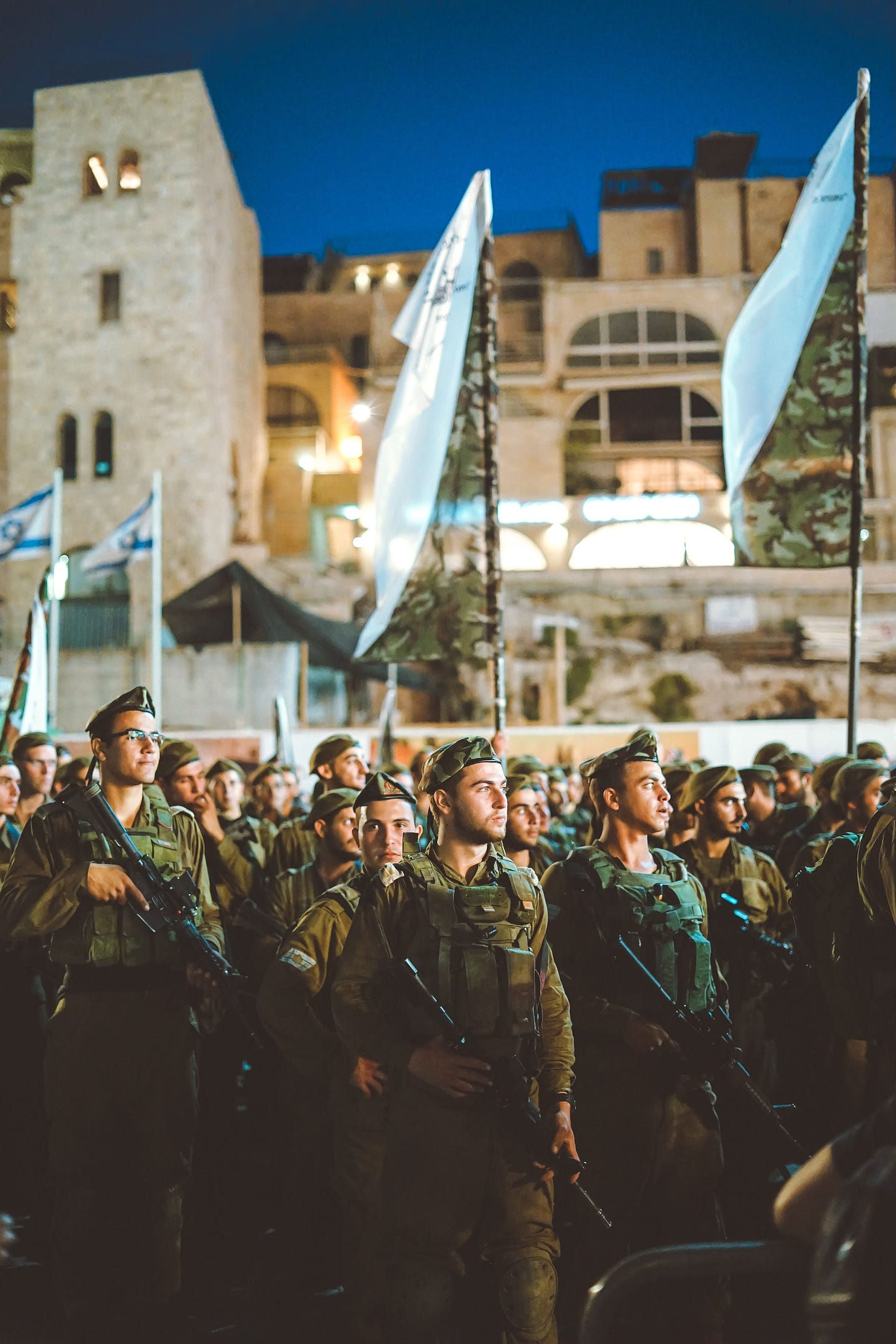War's Distant Drums

In a theatre of unrelenting strife, Israel's forces continue their assault on Hamas strongholds in Gaza, while also preparing for a potential ground invasion. This escalation endures despite the rising toll on Palestinian civilians and the stonewalled international efforts at the United Nations to orchestrate a humanitarian aid delivery.
Turning his attention beyond the devastating war ignited by an October 7 onslaught on Israel by Palestinian Hamas militants, U.S. President Joe Biden envisioned a future where Israeli and Palestinian states harmoniously coexist. During a collaborative press briefing in Washington with Australian Prime Minister Anthony Albanese, Biden underscored the shared aspiration for Israelis and Palestinians to live in safety, dignity, and peace. The President speculated that Hamas's hostile actions towards southern Israel, leading to the tragic loss of 1,400 lives and a hostage crisis involving over 200 individuals of diverse nationalities, might be aimed at thwarting the budding normalization of relations between Israel and Saudi Arabia.
The retaliatory fury from Israel has, as per reports from Gaza's health ministry—managed by Hamas—claimed over 6,500 lives. Since October 7, a torrent of over 7,600 rockets has showered upon Israel from Gaza, igniting recurring skirmishes along the northern frontier. Following a rocket assault from Gaza on the city of Rishon Letzion, south of Tel Aviv, Israel’s Magen David Adom ambulance service reported attending to two individuals for injuries caused by shrapnel and glass.
The diplomatic sphere observed a stalemate as Russia and China vetoed a U.S.-drafted resolution at the UN Security Council, aimed at introducing lulls in the combat to enable the distribution of essential food, water, and medicine to Palestinian civilians. A counter-proposal by Russia, pushing for a broader ceasefire, failed to garner enough votes, with Israel arguing that such a pause could allow Hamas to regroup, thereby exacerbating the threat to civilians in Gaza.
Amid the tumult, a sliver of hope appeared as Egypt facilitated limited deliveries of essential supplies through Rafah, the only crossing not under Israeli control. On the Israeli front, the unyielding objective to dismantle Hamas, the ruling entity in Gaza, fueled their military endeavors. Israeli military spokesperson, Daniel Hagari, emphasized their resolve to continue strikes in Gaza to fulfill the war objectives, asserting that each strike fortified their stance for the subsequent phases of the war. Prime Minister Benjamin Netanyahu subtly alluded to preparations for a ground invasion, though kept the specifics regarding the timeline or scale under wraps. As Israeli tanks and troops assembled at the Gaza border awaiting directives, a significant call-up of 360,000 reservists was issued. The international community, however, has been urging to delay any invasion, primarily due to the precarious hostage situation. Over half of the estimated 220 hostages held by Hamas possess foreign passports from 25 distinct countries, with a significant number believed to have dual Israeli nationality.
The international stakes of this conflict were underscored by a report from the Wall Street Journal, citing U.S. and Israeli officials, which highlighted an agreement by Israel to temporarily halt the invasion plans. This move aims to allow the U.S. to reinforce missile defenses in the region to shield U.S. forces from the potential spillover of the Gaza war into broader Middle Eastern territories. The U.S. has reportedly convinced Israel to defer the invasion until American air defense systems are deployed in the region, which could materialize as early as this week. This precautionary measure reflects the escalating concerns that the conflict could intensify, inviting more attacks on U.S. troops in the Middle East, particularly by Iranian proxies, which could be further triggered by an Israeli incursion into Gaza.
As the sands of Gaza blend with the winds of war, the whispers of a World War III begin to traverse across continents. Each rocket launched not only reverberates through the ancient skies but echoes through the halls of global powers, stirring the silent drums of a larger battle. The ripples of hostility between Israel and Hamas have begun to touch distant shores, entwining with the already complex tapestry of international relations. The globe spins on the axis of uncertainty, each diplomatic discord, each failed resolution, drawing darker clouds on the horizon. The quest for peace is not just a cry from the war-torn lanes of Gaza but a fervent hope that flickers in the heart of humanity, a hope to divert the path that seems to be eerily inching towards a cataclysm that the world has witnessed twice before. Amidst the smoke of the present conflict, the silhouette of a third global conflagration looms, urging the architects of peace to mend the fissures before the doomsday clock ticks any closer to a global outcry.



